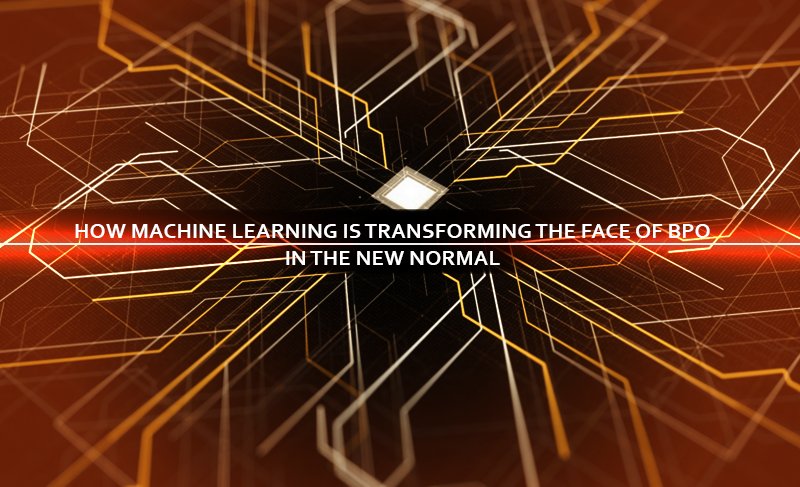
How Machine Learning is transforming the face of BPO in the new normal
“Machine learning has been setting industry benchmarks for long. It won’t be a hyperbole if this nascent, yet emerging technology changes the entire face of the BPO in the days to come”.
Machine learning has transformed industries in a way that no one envisaged a few years ago and is continuing to do so. What if I tell you, that ML has the potential to transform the entire BPO industry with its unique feature and the unparalleled benefits it offers to organizations.
Machine learning, in simple words, refers to the essential practice of enabling computers how to learn without being explicitly programmed, without any human intervention, and making predictions based on the data.
ML is a subset of AI, and just like it is shaping the other sectors, it is changing the face of technological advancement; it also managed to get into business process outsourcing (BPO) sectors.
Machine learning is considered one of the most reliable strategies for BPOs and not a replacement, thereby carrying the considerable potential to transform it in digitally driven ways.
However, this can only be achieved using suitable approaches when this technology is executed.
Research suggests that the global market value of Machine Learning ill reach USD 106 Billion by 2030. Well, that’s a vast number telling much more about ML than it has been known so far.
From manufacturing to retail and distribution, industries benefit from this technology unimaginably.
Machine Learning and BPO
When it comes to BPO, organizations have a notion of believing that it’s a man-made, human-intensive industry.
But that’s half the truth, as BPO companies benefit from implementing ML-driven features, which enable companies to sniff what it is to be an ML-driven organization and business processes.
Machine learning has shown positive signs of transforming the BPO industry functions. It is here to reshape how BPO functions and make the redundant repeating non-automated tasks into automated ones.
For instance, online chatting with customers to solve their problems and mitigate the issues they raise has been replaced with chatbots, leveraging digital tools and technologies.
Most companies in the BPO industry have already started adopting machine learning to be a more significant part of their digital transformation strategy, which is not only helping them make better sourcing choices and at the same time keeping most of the strategic business processes intact.
1.Improved Security
BPO organizations are prone to data leaks and mismanagement of business processes. Still, Machine learning provides improved security to the organization by analyzing the trends and giving the users the best tool, they need for making business decisions.
2.Improved Customer Experience
BPO directly deals with customers, and we wouldn’t be wrong if we say that ML is transitioning the customer experience as well, driving the digital aspect of it.
ML offers a great opportunity and potential by identifying security breaches and other customer-related issues at a quick pace by making customer-company interactions much more agreeable.
3.Real-time Interaction
Interaction with human beings has been minimized to a massive extent in the new normal with companies becoming more aware of solving dramatic issues.
It provides organizations a real-time view of human interaction without having human interaction by embedding ML into several processes.
4.Business Intelligence at work
Business intelligence is the need of the hour these days. It not only analyses data but also enables BPO organizations to make actionable decisions in real time by monitoring activities and flagging potential problems right away for the solution.
For instance, imagine a customer talking with a customer service representative and the customer starts to sound agitated.
The ML technology instantly alerts a supervisor that there is a potential issue, most likely long before the representative would likely ask for help, thereby reducing the turnaround time to resolve the problems.
Conclusion
Organizations have observed several benefits from the digitization of the BPO industry.
With the rise in adaptation of ML in the BPO sector, the tables are turned, that too, in favour of BPO organizations.
It caters to customers’ experience effectively and allows organizations to leverage the benefits that come with a digital BPO, which will only benefit the sector in the days to come.





